Telecom
Ericsson, UNICEF Launch Global Partnership to Map School Internet Connectivity
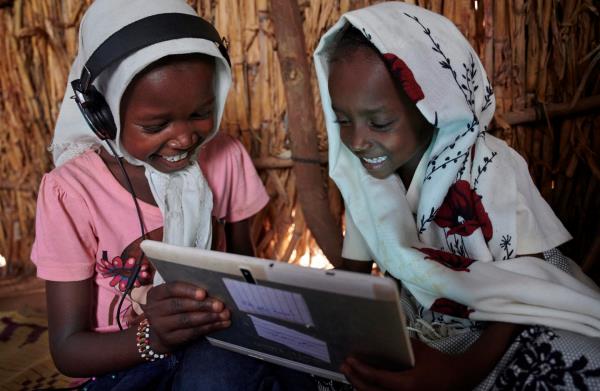
Ericsson and UNICEF announced today a global partnership to help map school connectivity in 35 countries by the end of 2023. Mapping the internet connectivity landscape for schools and their surrounding communities is a critical first step towards providing every child with access to digital learning opportunities.

Children use their tablet and work with each other at the UNICEF supported Debate e-Learning Centre in a village.
This joint effort is part of the Giga initiative. Launched last year and led by UNICEF and the International Telecommunication Union (ITU), Giga aims to connect every school to the internet. Ericsson is the first private sector partner to make a multimillion-dollar commitment to the initiative and does so as a Global UNICEF Partner for School Connectivity Mapping.
According to the ITU, 360 million young people currently do not have access to the internet. This results in exclusion, fewer resources to learn, and limited opportunities for the most vulnerable children and youth to fulfill their potential. Improved connectivity will increase access to information, opportunity, and choice, enabling generations of school children to take part in shaping their own futures.
“The deepening digital divide is one of the many inequalities that the COVID-19 pandemic has underscored,” said Charlotte Petri Gornitzka, Deputy Executive Director, Partnerships, UNICEF.
“School closures, coupled with limited or non-existent opportunities for remote learning, have upended children’s education worldwide. Our partnership with Ericsson will bring us closer to giving every child and young person access to digital learning opportunities.”
In addition to funding, Ericsson will commit resources for data engineering and data science capacity to accelerate school connectivity mapping. Specifically, Ericsson will assist with the collection, validation, analysis, monitoring and visual representation of real-time school connectivity data.
The data generated through the mapping will enable governments and the private sector to design and deploy digital solutions that enable learning for children and young people. Ericsson will also engage its extensive customer base to further advance the goals of the Giga initiative.
“Ericsson is uniquely positioned to be a key partner in helping address this important issue due to our technology expertise, global scale, decades of experience in public/private partnerships, and proven results connecting students and educators,” said Heather Johnson, Vice President of Sustainability and Corporate Responsibility, Ericsson.
“Working together with partners, like UNICEF and the ITU, amplifies the potential impact of school connectivity and is a concrete first step in helping bridge the digital divide globally.”
“ITU brings a history of technology policy advocacy and regulatory expertise to the vital mission of connecting every school in the world,” said Doreen Bogdan-Martin, Director, ITU Telecommunication Development Bureau. “We are thrilled that Ericsson will join Giga and help build the mapping tools necessary to make connecting every school a reality.”
The UNICEF-Ericsson partnership also contributes to the Generation Unlimited Global Breakthrough on Digital Connectivity that aims to give young people digital skills so they can fully and meaningfully participate in the digital economy.
Generation Unlimited is a global multi-sector partnership to meet the urgent need for expanded education, training and employment opportunities for young people. Additionally, the partnership supports UNICEF’s recent COVID-19 Agenda for Action in which the organization called for global action to keep children learning, thereby requiring the prioritization of internet connectivity in rural and remote areas.
Telecom
NLC Announces Nationwide Boycott over Telecom Hike
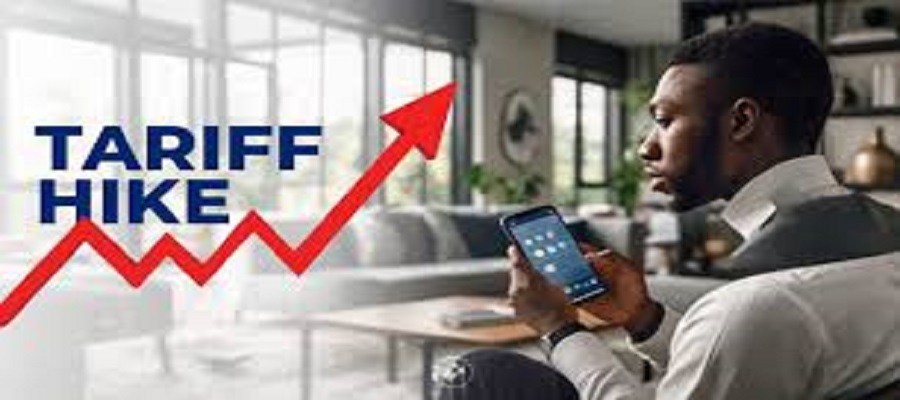
Nigeria Labour Congress (NLC), an umbrella group for trade unions, has announced that Nigerians are planning a statewide boycott of telecom services in protest of the Nigerian Communications Commission’s (NCC) recent approval of a 50% increase in phone costs.

Following carriers’ demands for cost-reflective charges amid challenging economic conditions, the NCC approved a 50% increase in telephone tariffs on Monday.
This hike, which fell short of the 100 percent increase that telcos requested, caused the average cost of calls to go from N11 to N16.5 per minute, the cost of 1GB of data to go from N287.5/GB to N431.25, and the price of SMS to go from N4 to N6.
“The adjustment, capped at a maximum of 50 percent of current tariffs, though lower than the over 100 percent requested by some network operators, was arrived at taking into account ongoing industry reforms that will positively influence sustainability,” the commission said.
In a statement issued , Joe Ajaero, president, NLC, denounced the tariff increase, calling it an unfair burden on those who are already facing financial difficulties.
He voiced concerns about the hike’s timing, pointing out that it comes while inflation and purchasing power are on the rise.
He said, “This decision, coming at a time when Nigerian workers and the masses are grappling with unprecedented economic hardship, is a clear assault on their welfare and an abandonment of the people to corporate fat cats.
“Telecommunication services are essential for daily communication, work, and access to information. Yet, an average Nigerian worker already spends approximately 10 percent of their wages on telecom charges.
“For a worker earning the current minimum wage of N70,000, this means an increase from N7,000 to a staggering N10,500 per month, or 15 percent of his salary—an unsustainable cost.
“NLC is not opposed to a tariff review but disagrees with the approved rate of increase. We therefore call on the government, the NCC, and the National Assembly to stop the implementation of this ill-advised hike to allow a reasonable conversation around it.
“If the dialogue agrees on the need for the hike, then we can all seek a more humane increase and definitely not this 50 percent hike,” he stated.
The NCC added that rate adjustments were made to close the gap between current tariffs and growing operating costs without compromising service delivery to customers.
Telcos had complained that a 300 percent increase in operational costs was forcing them to shut down.
Telecom
FG, WIOCC Sign $10M MoU to Connect 3 million Homes with Broadband Fibre Connectivity
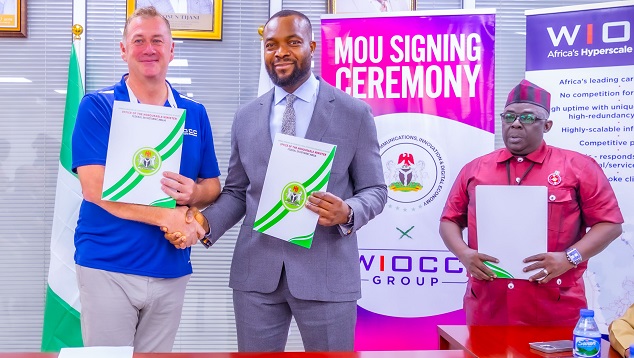
WIOCC Group, a provider of digital infrastructure and connectivity solutions, is pleased to announce a strategic partnership with the Federal Ministry of Communications Innovation & Digital Economy (FMCIDE) of Nigeria.

This collaboration aims to accelerate the development of Nigeria’s digital economy through substantial investments in critical digital infrastructure and comprehensive stakeholder engagement.
The partnership, formalized through a Memorandum of Understanding (MoU), marks a significant milestone in the efforts to enhance digital connectivity and inclusion across Nigeria. Represented by the Honourable Minister, Dr. ‘Bosun Tijani, and WIOCC Group’s Chief Development Officer, Mr. Darren Bedford, the agreement outlines a shared vision for fostering technical efficiency and collective prosperity.
The partnership focuses on enhancing stakeholder engagement by jointly reviewing and improving the National Policy on Telecommunications to meet digital economy needs. WIOCC Group commits to investing in Nigeria’s digital infrastructure, deploying a hyperscale open-access digital platform for internet service providers (ISPs) with advanced fibre and colocation facilities.
Additionally, through this partnership, the collaboration with the Nigerian Broadband Alliance for Nigeria aims to improve broadband quality and accessibility, with WIOCC expanding fibre infrastructure and partnering with ISPs to connect more homes and businesses. The partnership also includes WIOCC providing digital infrastructure training and supporting job creation for Nigerian youth.
Commenting on the partnership, WIOCC Group’s Chief Business Development Officer, Mr. Darren Bedford said, “The MoU with the Ministry of Communications underscores our commitment to supporting Nigeria’s digital transformation, by working together, we aim to create a robust digital ecosystem that benefits all stakeholders and drives sustainable economic growth”.
Dr ‘Bosun Tijani stated that “This collaboration with WIOCC Group represents a significant step forward in our commitment to ensuring that Nigerians have access to reliable and high-quality telecommunications services. We are committed to building a resilient digital infrastructure that fosters innovation, inclusion, and economic growth.
“Working with the private sector to deliver last-mile connectivity to homes and businesses, amongst other key benefits, is essential to achieving this vision, and we are excited about the opportunities this collaboration creates for empowering communities across Nigeria”.
Telecom
QNET Champions Education Accessibility with QLearn on International Day of Education 2025
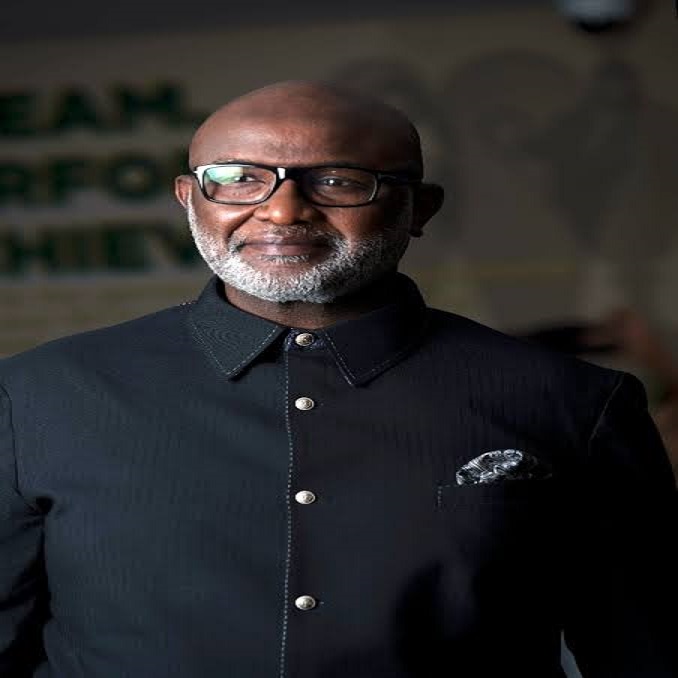
QNET, a global leader in lifestyle and wellness-focused direct selling, celebrates the UNESCO International Day of Education 2025 by advancing educational access for learners of all ages through its innovative e-learning platform, QLearn.

This year’s theme, “AI and Education: Preserving Human Agency in an Automated World,” highlights the critical role of education in empowering individuals to thrive in an AI-driven future.
According to the World Economic Forum’s Future of Jobs Report 2025, technological advancements and the green economy are projected to create a net gain of 78 million jobs globally by 2030.
However, the report also emphasizes the need for education reform and reskilling to address the skills gap generated by AI advancements and to prepare individuals for an evolving, automated job market.
In response to these global shifts, QNET’s QLearn platform offers accessible, high-quality e-learning solutions, covering everything from professional development to K-12 education.
These courses are designed to help individuals acquire the knowledge and skills necessary to excel in a rapidly changing world
Biram Fall, QNET’s Regional General Manager for Sub-Saharan Africa, shared his thoughts on the International Day of Education: “In today’s fast-evolving technological landscape, education is more important than ever.
“As AI reshapes industries, fostering adaptability through innovative learning is crucial. Through QLearn, QNET is committed to providing quality education and empowering individuals to shape their futures.”
Beyond QLearn, QNET is actively engaged in global educational initiatives, such as FinGreen, its financial literacy program, and strategic partnerships with organizations like the Lagos Food Bank Initiative (LFBI) in Nigeria.
Together with the LFBI, QNET has provided nutritious meals to over 1,000 underserved students under the EDUFOOD program, helping reduce absenteeism and improve academic performance.
QNET continues to play a significant role in global efforts to position education as a pillar of sustainability and equity.
By leveraging digital tools and the transformative potential of AI, QNET is working to bridge educational gaps and empower communities to thrive.

 Telecom12 hours ago
Telecom12 hours agoSamsung Galaxy S25 Series: Redefining Smartphones with Advanced AI Integration

 General News17 hours ago
General News17 hours agoFG Plans Aircraft Manufacturing in Nigeria

 Telecom12 hours ago
Telecom12 hours agoMTN’s New Year Campaign: Inspiring Change, One Move at a Time

 General News12 hours ago
General News12 hours agoCBN’s FX Code to Boost Transparency for Launch on January 28

 Telecom17 hours ago
Telecom17 hours agoFCCPC Insists Telcos’s Tariff Hike must Translate to Improved Services
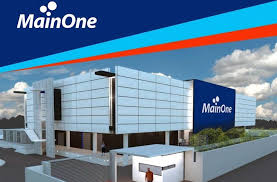
 Telecom12 hours ago
Telecom12 hours agoMainOne Boosts Connectivity for West African Businesses with Equiano Cable

 Telecom12 hours ago
Telecom12 hours agoFG, WIOCC Sign $10M MoU to Connect 3 million Homes with Broadband Fibre Connectivity

 Telecom11 hours ago
Telecom11 hours agoNLC Announces Nationwide Boycott over Telecom Hike

























